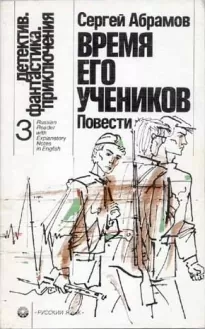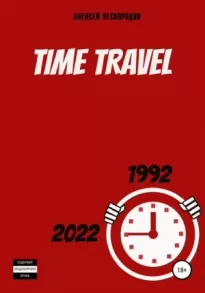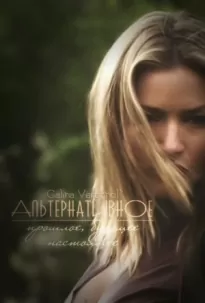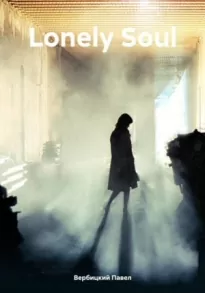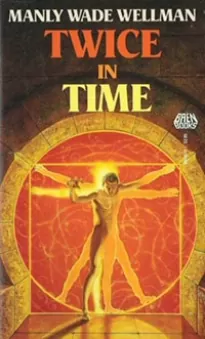Разговорный английский
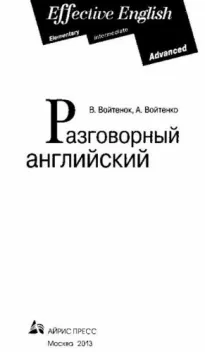
- Автор: Владимир Войтенок
- Жанр: Самиздат, сетевая литература
Читать книгу "Разговорный английский"
P. Are you engaged, driver?
D. No, sir. Where do you wish me to take you?
P. To the station.
D. Victoria Station, sir?
P. Yes, but I have to pick up my luggage first.
D. Where is it, sir?
P. 21, N. Street.
D. All right, step in, please.
D. Well, here we are, sir.
P. Yes, I’ll be back in a moment. (Goes into the house; shortly after comes out with a suitcase.)
D. Allow me, please. (Takes the suitcase and puts it into the car.) Is that all, sir?
P. Yes, we may start.
D. Yes, sir. Bang the door, please.
P. Drive faster. I’m afraid I shall be late.
D. Yes, sir. What’s your train?
P. The 5.15.
D. It’s 4.30 now. We shall be there much before time.
P. I hope so.
D. Here is the station, sir.
P. Yes. How much is it?
D. ... shillings, sir. Here is your suitcase.
P. Yes, thank you. Here you are.
D. Thank you, sir. A pleasant journey.
XIV. Travelling
1. TRAVELLING BY TRAIN
There are various means of travel. We can travel by train, boat, aeroplane, car and finally we can travel on foot. You have, ail of you, done a certain amount of travelling, so let’s talk about the method of travel you like best.
Should you ask me what kind of transport I like best I’d speak in support of the train. With a train you have speed, comfort and pleasure combined. Suppose you want to go from Moscow to Vladivostok. The taxi brings you to one of the biggest stations in Moscow — the “Severny Terminal.”
What place is more interesting than a big station? There is the movement, the excitement, the gaiety of the people going away and sorrow of those who are seeing others off. There are the shouts of the porters as they pull luggage along the platforms to the waiting trains, the crowd at the booking-office getting tickets, the children tightly holding on to the skirts of their mothers, and passengers hurrying to board the train.
At last you manage to make your way through the crowd, closely following the porter, who has taken care of your luggage, and get out on to the platform. There are many tracks and trains there. No need for you to look round and read the signs that tell which train you must take. You follow your porter, and here you are — Car number 2, Train —.
You show your ticket to the guard and in you go into a most wonderful carriage. All is bustle and confusion, with people filing in,
bumping into each other, and what not. At last you manage to stow away your luggage and get out on to the platform for fresh air and bid farewell to the well-wishers who have come to see you off.
But you have scarcely time to kiss and hug your friends when the station-master on duty, in a red cap, signals the train. You hear no shrill whistle of the engine — the train pulls out of the station noiselessly and without a jerk.
You are on your way. You start up a conversation with your fellow-passengers (people take to each other quickly when travelling) and soon you get to know who is who and what. Now that the excitement of the day is over you begin to feel hungry.
The dining-car steward happens to come along and you take bookings for dinner1 or supper, whichever it might be. As you go for the second sitting you have time to wash. By that time the guard has made your bed. You take your towel and go to the toilet to wash yourself.
You feel tired now, after a hearty meal, so you decide to turn in2. You get into your upper berth and begin to absorb the beauty of the changing scenes that fly past you — the cheerful fields of wheat and corn, the meadows under a mantle of flowers, grass and green moss, the rivers that run through woodland countries, the forests with their delicious sense of peace, and the mountains ribbed with sharp steep ridges.
But drowsiness creeps over you. You close your eyes and soon drift away into that vast mysterious void which men call sleep.
Vocabulary Notes
1 to take booking for dinner — сделать предварительный заказ на обед 2 to turn in {coll.) — ложиться спать
2. TRAVELLING BY SEA
For me there is no travel so fine as by sea. There are many things that make travel by sea a fascinating thing for me. Though I am not much of a sailor, I love the sight of a ship with its many decks, cabins and staterooms. It looks like a huge white floating city. It is delightful to be out at sea, too, and promenade the desk or sit in a deck-chair and take the sun.
But what can be compared with the excitement you experience when you sight land! The narrow strip of land on the horizon seems slowly coming towards you. Gradually the outlines of the shore
become more distinct, and on coming nearer you get a full view of the city, the harbour, and of the big ships coming in from and leaving for distant lands.
I shall never forget my first trip on board the “Pobeda” from Odessa to Sochi. The season was at its height then and the passenger traffic on the Odessa—Batumi line was heavy, so we, that is, Ann and I, had to reserve berths at the agency beforehand. After some three or four days of feverish preparations and expectations we were ready to start.
The ship was to sail at 1.40 p. m. on a certain Saturday early in July. On the morning of that distinguished day I felt very excited at the thought that in a few hours I shall go away. A little after noon we reached the pier and there, for the first time in my life, I beheld a real ship. What a beauty she was!
The pier was crowded with cars, trucks loaded with luggage, passengers arriving and hurrying on board, and well-wishers seeing them off. It was really thrilling going up the gangway. Up and up we went until we reached the main deck. And there from high above we looked at the people that seemed so tiny down below, crowding on the pier.
When we got on deck, we were attended by a sailor who took us down below deck. Inside the ship there was a vast labyrinth of aisles that ran into each other and out again and seemed to lead nowhere. But we tripped along following the sailor, and soon he brought us to our cabin. It was a small room with two berths in it, and against the wall, just below the round window, called a porthole, stood a little trifle of a table.
But we had no time to look around because we were eager to go back on deck. There, all was bustle and confusion as before. A noisy excitement was kept up from one end of the ship to the other. Shortly we heard the ship’s siren warning the passengers and their well-wishers to say their last goodbye to each other. After some 10-15 minutes the ship weighed anchor and slowly slipped out of the harbour, leaving Odessa behind wrapped in a blue noonday haze.
As soon as the land faded from sight, we went exploring the ship. The “Pobeda” had all modem conveniences and a wide choice of entertainment facilities. There was a good library that could afford a fair amount of reading matter. Then there were restaurants that took care of the passengers’ appetites, a cinema-hall, billiard rooms and what not.
We soon felt remarkably tired with walking up and down from one deck to another and were very glad to occupy two deck-chairs that happened to be vacant. Though the sea was moderately calm, the
ship rolled somewhat. Some passengers took to their berths — they felt seasick. By some happy fortune my friend and I were not sick. The fresh sea wind blew in our faces and it was lovely to look at the gulls and hear their cries as they gracefully swept over the waves almost touching the water with their wings.
In the evening we enjoyed the sunset, the beautiful sunset at sea. The sun, red as a glowing coal, gradually went down behind the horizon flooding the sky and the flakes of clouds with a crimson light. It was simply marvellous!
Our voyage lasted several days. On our way we called at several ports The stays were quite sufficient to give us the opportunity of visiting some points of interest there.
But I shall never forget the day when I first saw Sochi. It was evening when we came in sight of the town. From afar the snow-white palaces seemed like tiny cottages nestling cosily in a sea of fresh green vegetation. It was a picture of wonderful beauty.
In front was the smooth sea and in the background the high mountains, the slopes of which were clothed with green foliage. Even now when I recall it to my mind I experience a thrill of pleasure.
I honestly say that I love best to travel by ship.
3. TRAVELLING BY AIR
For me there is nothing like travel by air: it is more comfortable, more convenient and, of course, far quicker than any other method. There is none of the dust and dirt of a railway or car journey; none of the trouble of changing from train to steamer, pushing your way through crowds to get from the boat to the Customs (if you travel abroad) and then to another train. A taxi or bus of the Airline Service takes you to the airport. There on the runway you see a sleek and beautiful jet-propelled passenger liner ready to carry you to your place of destination. When the formalities of registering yourself and weighing your baggage are over, you get up the gangway and board the plane. If you are travelling for the first time, you may apply to the stewardess and she will see you to your seat and give you all the information you need as, how to strap your belt, how to adjust your seat and so on. If you feel hungry, you will be provided with an excellent lunch. Strange though it may seem, it actually comes out cheaper, considering what you save in hotel charges or sleeping accomodation on the train, meals and so on.
But it is not only on account of the convenience, comfort and speed that I like air travel. The whole experience is a spiritually
thrilling thing for me. I enjoy greatly the feeling of flying. As you leave the earth behind you, you seem to belong to another world, a bigger, wider, freer world than the one you left. What loveliness there is on earth when you see it from above; the rapid changing scenes below are of underscribable beauty.
What can compare in beauty with the view one beholds when flying, for instance, from Moscow to Sverdlovsk? Just as the early tinges of dawn flush the eastern sky you take off from the Moscow airport leaving behind the huge city in deep slumber; the sun has not risen, but the bird-like machine is flying to greet it. Looking down you gain a magnificent view of a charming landscape — to the right are fields carefully cultivated, to the left — pasture-lands, ahead — a cheerful river winding its way through the lowland. On you fly past villages and cities, hills and valleyes, each following the other in quick succession. There in the far distance you perceive the outlines of a mountain range.
You scarcely have time to realize that the mountains ribbed with sharp steep ridges and clothed with vegetation on both sides are the Urals when you find them below you and in another minute or two far behind.
On and on you fly with the ever-changing scenes below till you safely land at the airport in Sverdlovsk.
No, you will never make me believe that there is a better way of travelling than by air.
4. AT THE INQU IRY BUREAU
P. Could you possibly tell me how I could get to Ashkhabad?
C. Well, there are different ways. You may go by air, or by land, or by sea.
P. Not by air, thank you. I don’t take to flying. But what do you mean by sea? What has Ashkhabad to do with the sea?
C. Well, you just look at this map here. Can you see from there?
P. Yes, I can.
C. Now you see, here is Ashkhabad. From here, that is from Moscow, you may go by train via Tashkent. This is a roundabout way, see?
P. I do. And how do I go by sea?
C. Well, you may go by train as far as Baku. Here it is.
P. Now I understand. There I change the train for a boat, cross the Caspian sea, get the boat-train for Tashkent and here we are.
C. Quite right. And there’s another way still.
P. Another way? I don’t see any other way there.
C. Well now, suppose you want to go on a pleasure trip and have a squint at the world.
P. Well, let’s suppose that though I’m too busy to go about sightseeing.
C. Then you go to Odessa —.
P. To Odessa? Why on earth should I have to go to Odessa?
C. Why, to do some sightseeing! — to skirt along the coast of the Black Sea, to call at differents ports and see big ships coming in from and going to distant lands, to — well, don’t you call that sightseeing?
P. I do. And it’s rather alluring, but — no time, you know. Which is the shortest, I mean, the quickest way to get there?
C. By air, of course. It’ll take you just a few hours to get there.
P. Well, I thank you for the pains you have taken in giving me such useful information. Goodbye.
5. AT THE STATION
P. Oh, there you are! You have come early; it’s only a quarter to eight.
M. Well, I prefer to be ahead of time rather than behind.
P. Have you had breakfast?
M. Yes, half an hour ago. Have you packed?
P. No, not yet. I have still a few things to pack but there’s no more room in the suitcase.
M. Well, put them into your briefcase then. In the meantime I’ll go and call a taxi.
P. Right! And where’s your suitcase?
M. I’ve sent it to the station. My brother is taking care of it.
P. Where shall we meet him?
M. In the waiting room. Well, I’m off for the taxi. I hope you’ll be ready by the time I get back?
P. Sure.
M. Well, the taxi is at the door.
P. Oh, you were rather quick, I should say. I hadn’t time to take a bite. Well, never mind. Will you help me to take the suitcase down?
M. Certainly.
P. Now where is my hat?
M. Look for it in the wardrobe.
P. It’s not there.
M. Have you looked for it in the other room?
P. Not yet.
M. Then do so.
P. Oh, here it is. Well, it seems that there’s nothing left behind. Go ahead, please. I’ll be down in a moment.
P. Here we are. Here, driver, take this. No, you may keep the change.
M. What are we going to do now?
P. We’ll have to hail a —. I say, porter, are you engaged? PORTER. No, sir. I’ll see to our luggage, if you please. What train?
P. The 9.00 to N. But we have to get tickets first. Say, Michael, you go with the porter to the waiting-room. I’ll go and get the tickets now. By the way, what’s your number, porter?
PORTER. 46, young man.
P. Thank you. Well, Michael, we meet in the waiting-room?
M. Yes, but do be quick — our time is short, you know.
P. No need to worry. Now where is the booking-office, I wonder? Oh, there it is.
P. Two tickets to L., please.
CLERK. What seats, young man?
P. Reserved berths, if you please.
CLERK. ... pounds, please.
P. Here you are. Thank you.
6. IN THE PORT
N. {To a passer-by.) How do we get to Pier 2, please?
P. You are on your right way. Straight ahead and then to the right.
(They see the ship at the pier.)
M. My, what a beauty she is!
N. Yes. How many passengers can she accommodate, I wonder?
M. Some 500—600 at least. She is on her maiden voyage, don’t you know?
N. Really? They have lowered the gangway. Let’s hurry on board.
M. {On board the ship.) Which is the way to Cabin 24, 3rd class, please.
SAILOR. Straight ahead, then right and down. You’ll be attended to there.
N. It’s rather difficult to find one’s way here with all these narrow corridors, isn’t it?
2ND SAILOR. You’ll get accustomed to things here in no time, gentlemen. Well, here we are, Cabin 24, 3rd class. These are your berths.
M. But how small the cabin is! There is hardly any room to turn in here.
SAILOR. You may put your things here in this locker.
N. Who are we sharing the cabin with, I wonder?
SAILOR. You’ll find out in due time, I hope. The restaurant is on the main deck. A pleasant voyage, gentlemen.
N. We hope so. Thank you very much.
M. What do we do now? Go up on deck?
N. Of course. Let’s go up now.
7. THE VOYAGE
M. I say, N., I feel rather queer.
N. Sea-sick already? Why, we are hardly out at sea yet.
M. Well, this rolling motion of the ship affects me somewhat.
N. I wouldn’t say you are much of a sailor then. Want to go down?
M. I’d rather not.
N. Hold on to the rail. Isn’t it a nice breeze?
M. Yes, it —. Say, N., are there any life-boats on this ship?
N. What! Have you lost confidence in the ship already?
M. Not quite, but —. We are in for a storm, I suppose. The sea is getting rough.
N. You’d better not look down, M. You’ll get giddy. Here, take this deck-chair and sit down for a while.
M. No, I think, I’ll go down, after all.
N. Hold tight, I’ll take you to your cabin. You’ll be all right by the morning.
M. I hope so.
N. We touch at K. at nine o’cl —.
M. I feel like vomiting, N.
N. Well, relax yourself and you’ll feel better. Well? How do you feel now?
M. Much better, thanks.
8. IN THE PLANE
STEWARDESS. This way, gentlemen. These seats are yours.
N. Have we to strap ourselves with these belts now?
S. No, this is in case of emergency.
N. When we begin to tumble down, eh?
S. Complete safety is guaranteed. How do you take to flying, gentlemen?
N. Can’t say. I’ve never been in a plane before. Have you, M.?
M. Neither have 1.1 hope it won’t make me feel bad.
S. So do I. If you should want anything, gentlemen, there’s a stewardess call button over there. The individual loud-speaker is at your right.
M. With whom may we talk?
S. With the captain and me, sir.
M. Is smoking allowed here?
S. The sign over there will answer your question, sir.
M. Oh, yes. Thank you. It’ll be a good reminder.
S. The smoking-room is at the rear of the plane.
M. When do we take off?
S. In ten minutes’ time. If you feel tired you may adjust the seat in a reclining position.
N. Yes, thank you. How many hops do we make in our flight?
